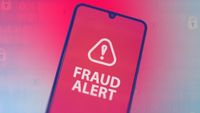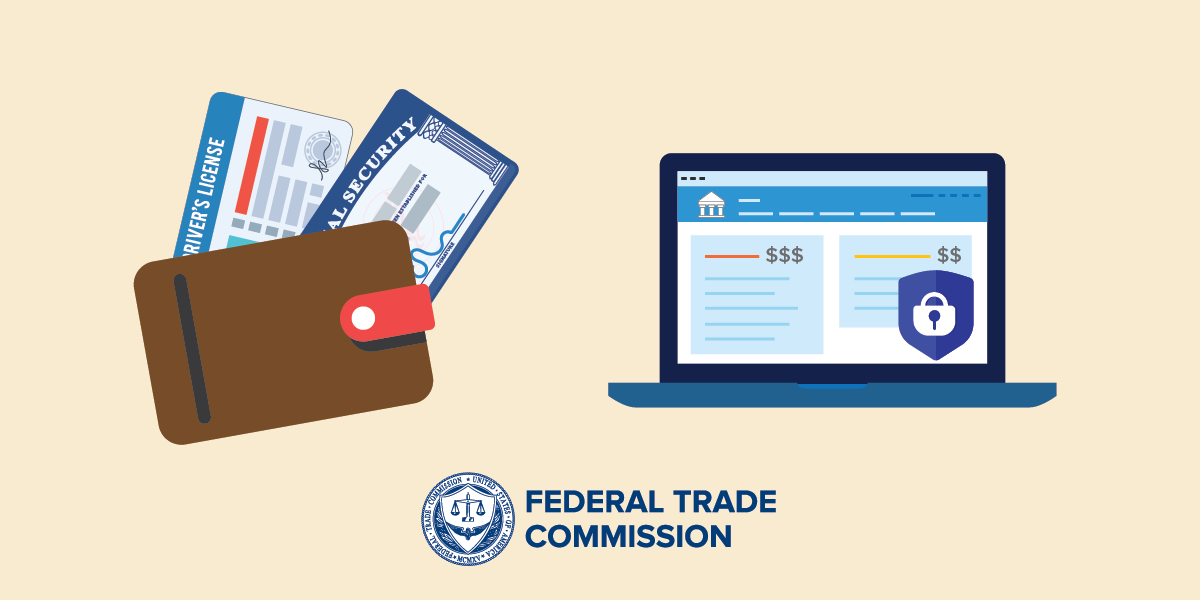Explore web search results related to this domain and discover relevant information.
If you are contacted by a creditor or lender, confirm whether or not you made the request to get credit. Previous Next ... You believe you are, or may become the victim of fraud. An initial fraud alert is free and lasts for one year.
If you are contacted by a creditor or lender, confirm whether or not you made the request to get credit. Previous Next ... You believe you are, or may become the victim of fraud. An initial fraud alert is free and lasts for one year.You've been a victim of ID theft, and you've completed an FTC Identity Theft Report or police report. An extended fraud alert is free, lasts for seven years, and removes you from credit card and insurance offers for five years.A fraud alert is a notice on your credit report that alerts creditors you are or may be a victim of fraud, including identity theft. A fraud alert can make it harder for someone to open unauthorized accounts in your name.It encourages or requires lenders and creditors to take extra steps to verify your identity, such as contacting you by phone, before opening a new credit account in your name or making changes to existing accounts. There are two types of fraud alerts you can place on your credit report, and both are free.

If you have a fraud alert on your credit report, you cannot create a personal my Social Security account. You must ask our Identity Services Provider …
If you have a fraud alert on your credit report, you cannot create a personal my Social Security account. You must ask our Identity Services Provider to remove the alert or contact your local Social Security office to create a free and secure my Social Security account without removing the fraud alert.Alternatively, you can create an account using ID.me, without having to remove the fraud alert.

A rising number of states allow banks and credit unions to alert a client's "trusted contacts" when elder fraud is suspected. Here are the pros and cons of this new tactic.
Key Insight: Alerting an elderly client's "trusted contacts" can be a fast way to short-circuit a scam, but experts say it must be done carefully. Supporting Data: In 2024, American seniors lost $4.9 billion to scams. Expert Quote: "A lot of times these situations are very time sensitive," said Ashley Sharp, a vice president at the Illinois Credit Union League.The advantage of this approach, proponents say, is that contacting a friend or relative can often stop a scam more quickly than navigating the proper legal channels. Before Illinois' new law was passed, for example, the only option available to credit unions suspecting a scam was to alert law enforcement or other state agencies."We do like the credit unions' approach on this, and certainly it's something we should consider going forward," said Ben Jackson, an executive vice president at the Illinois Banking Association, a bank trade group in the state. In fact, some states already allow banks to use this tactic. In 2024, Virginia · passed a law permitting all financial institutions to alert an elderly customer's "trusted contact" about a potential scam.How can lenders stop elder fraud when a scam is already underway? One approach, allowed by a growing number of state laws, is to contact someone the client trusts. It's a tactic that can work quickly — or backfire.
Credit Alert Verification Reporting System (CAIVRS)CAIVRS was developed by the Department of Housing and Urban Development in June 1987 as a shared database of defaulted Federal debtors, and enables processors of applications for Federal credit benefits to identify individuals who are in default ...
Credit Alert Verification Reporting System (CAIVRS)CAIVRS was developed by the Department of Housing and Urban Development in June 1987 as a shared database of defaulted Federal debtors, and enables processors of applications for Federal credit benefits to identify individuals who are in default or have had claims paid on direct or guaranteed Federal loans, or are delinquCAIVRS was developed by the Department of Housing and Urban Development in June 1987 as a shared database of defaulted Federal debtors, and enables processors of applications for Federal credit benefits to identify individuals who are in default or have had claims paid on direct or guaranteed Federal loans, or are delinquent or other debts owed to Federal agencies.In 1989, the Office of Management and Budget set a performance goal that certain program agencies and their authorized financial institutions should use CAIVRS to conduct prescreening to determine a loan applicant's credit status with the Federal Government. This methodology enables the program agencies to prescreen their borrowers and to broaden the Federal Government's base in determining an applicant's creditworthiness.The Office of Management and Budget (OMB) has mandated that all Federal Credit agencies prescreen all applicants for non-delinquency in Federal debt, and, if practical, do the prescreening through a system of shared data. CAIVRS provides a single repository of delinquent Federal debtor records from HUD, USDA, VA, and SBA.

Take control of your spending and protect your finances. Learn how to set up credit card alerts to monitor purchases, track your balance, and stay on top of payments.
Learning how to manage your credit card usage is essential. Do you want to simplify managing your credit cards? Most credit card companies offer free account management features. One example is credit card alerts, which you can enable through your credit card issuer’s mobile app or website.There are a variety of available alerts, such as payment due alerts, spending limit alerts, unusual activity alerts, and other credit card notifications, allowing you to customize how you stay informed about your account activity.Credit card issuers offer multiple methods for receiving alerts, including text messages, emails, and push notifications. You can choose how far in advance you want to receive a payment due date reminder, such as several days before the due date or one day before your bill is due.While not an alert, another account management tool to consider is automatic payments. You can enable automatic payments through your online account. Once you set up this payment feature and link a payment method, your credit card bill will be paid automatically each month.
Between June 25 and July 2, 2025, Carter Federal Credit Union experienced a security incident on its network. Upon detection, Carter launched an investigation with the assistance of third-party cyber security experts to determine the nature and scope of the incident.
NEW YORK CITY, NY / ACCESS Newswire / September 8, 2025 / Carter Credit Union ("Carter") recently disclosed that it suffered a data breach that compromised the sensitive personal and protected health data of individuals. This data breach has led to concerns over the security of sensitive personal and protected health information entrusted to Carter.WHAT'S THIS ABOUT?Between June 25 and July 2, 2025, Carter Federal Credit Union experienced a security incident on its network.Between June 25 and July 2, 2025, Carter Federal Credit Union experienced a security incident on its network. Upon detection, Carter launched an investigation with the assistance of third-party cyber security experts to determine the nature and scope of the incident.The impacted data may include name, date of birth, Social Security number, driver's license/state identification number, passport number, credit/debit card number, financial account number, financial account history, retirement/401(k) benefits information, limited medical treatment/diagnosis information, and health insurance information.If you received a data breach notification letter from Carter Credit Union, you are likely to be affected.

Requesting a fraud alert at any one of the credit bureaus automatically applies alerts to your credit files at all three bureaus. Each fraud alert deactivates itself on a preset expiration date. You can remove a fraud alert, but you must contact each credit bureau individually.
A fraud alert is a notification that appears in your credit file instructing lenders to take extra steps to verify your identity before processing credit card or loan applications in order to prevent identity thieves and other criminals from securing loans or opening credit accounts in your name.Requesting a fraud alert at any one of the credit bureaus automatically applies alerts to your credit files at all three bureaus. Each fraud alert deactivates itself on a preset expiration date. You can remove a fraud alert, but you must contact each credit bureau individually.Therefore, it can neither help nor hurt your ability to qualify for a loan or credit card. A fraud alert can affect your ability to get instant approval for credit card or in-store credit offers you find online or at retail outlets. The automated approval systems used for these offers may not be equipped to handle the identity confirmation steps fraud alerts require.It’s easy to remove fraud alerts if you find out your data wasn’t compromised, or to just let them lapse if you find you aren’t getting any indication that fraudsters are applying for credit in your name. If you’re certain your data has been compromised, you may seek an extended fraud victim alert, which lasts for seven years.


Setting up fraud alerts on your credit reports only takes a few minutes. They can protect your identity and your money.
In addition to writing for publications like Bankrate, CreditCards.com, Forbes Advisor and Investopedia, Johnson owns Club Thrifty and is the co-author of "Zero Down Your Debt: Reclaim Your Income and Build a Life You'll Love." ... Holly Johnson July 5, 2025 1:02 a.m. PT ... If deleting and reporting scam texts and phone calls has become part of your daily routine, there's another simple way to protect yourself from fraud -- and it may be more effective. Placing a fraud alert on your credit reports can prevent scammers from inflicting financial harm, and it's easier to do than you think.Reporting fraud is important for helping law enforcement catch criminals and inform the public about popular scams, but may not help as much on a personal level. Fraud alerts are specific to you and your credit reports, and they can warn you quickly that someone is using your personal info.The actual fraud alert is a message that appears on your credit reports that lenders can see. It lets them know that your sensitive information could be compromised, and to take extra steps to verify your identity.Initial fraud alerts last for one year and alert businesses to check with you before a new account is opened in your name. · For example, if you or someone else tried to open a new credit card account, the card issuer would reach out to you to verify before approval.
Review your credit report for signs ... Identity theft is a serious crime, but we’re here to help you through it. Alert your financial institutions and cancel credit cards and checks, if needed....
You’re entitled to one free credit report with an initial fraud alert or two free credit reports with an extended fraud alert. If you want a copy of your credit report now without setting a fraud alert, you can get one for free through the TransUnion Service Center.This is a 1-year alert for eligible military personnel who want to minimize their risk of fraud or Identity theft. You can request one online through the TransUnion Service Center. Add Active Duty Military Alert · When you want lenders to take an extra step and call you to verify credit applications in your name, but not completely block access to your credit report.Lenders will call you to verify a credit application made in your name. This can help you spot potential identity theft. Yes. You can add or remove a fraud alert at any time for free on the TransUnion Service Center.Review your credit report for signs of suspicious activity and unfamiliar changes, like accounts opened that you don’t recognize or credit checks from companies you’ve never done business with. Monitor your credit card or other account statements for purchases you didn’t make. Identity theft is a serious crime, but we’re here to help you through it. Alert your financial institutions and cancel credit cards and checks, if needed.
Customers with one of Canada’s major banks say they received credit card and line of credit offers, only to have them cancelled weeks later without notice.
Consumer Alert · News · By Pat ForanOpens in new window · Updated: September 10, 2025 at 10:31AM EDT · Published: September 10, 2025 at 6:04AM EDT · Some customers with one of Canada’s major banks just got credit card offers but weeks after being approved the cards were cancelled without notice.

After decades of providing trusted credit reporting services to businesses and individuals, Alert Credit Bureau has officially closed its doors. We are incredibly thankful for the trust you’ve placed in us over the years. Serving our community with integrity and dedication has been our greatest ...
After decades of providing trusted credit reporting services to businesses and individuals, Alert Credit Bureau has officially closed its doors. We are incredibly thankful for the trust you’ve placed in us over the years. Serving our community with integrity and dedication has been our greatest privilege.
Credit freezes and fraud alerts can help protect you from identity theft. They can also help stop someone who stole your identity from continuing to misuse it. Credit freezes and fraud alerts work in different ways. Learn the differences, how to place a freeze or alert, and how long they last.
A freeze keeps people from getting into your credit report. While a freeze is in place, nobody can open a new credit account. A freeze is free to place and lift and it doesn’t affect your credit score. Even if you already have a credit freeze in place, you can place a fraud alert.What it does: An initial fraud alert tells businesses to check with you before opening a new account in your name. Usually, that means contacting you first to make sure the person trying to open a new account is really you. Unlike a credit freeze, a fraud alert doesn’t prevent businesses from seeing your credit report.How long it lasts: An initial fraud alert lasts one year. You can choose to renew it. ... How to place one: Contact any one of the three credit bureaus — Equifax, Experian, and TransUnion. You don’t have to contact all three.The credit bureaus will also take you off their marketing lists for unsolicited credit and insurance offers for five years, unless you ask them not to. Who can place one: People who experienced identity theft and who have completed an FTC identity theft report at IdentityTheft.gov or filed a police report. How long it lasts: An extended fraud alert lasts seven years.


These details don't directly impact your credit score, but they connect the report to you and confirm your identity, so the information should be accurate and up-to-date: Full name, including any nicknames and aliases used on any of your accounts ... Personal statements, which you can add to your report to alert ...
These details don't directly impact your credit score, but they connect the report to you and confirm your identity, so the information should be accurate and up-to-date: Full name, including any nicknames and aliases used on any of your accounts ... Personal statements, which you can add to your report to alert creditors as addendums, such as a credit freeze or reasons for late paymentsYour credit score is a number assigned to you based on the data in your credit report. It alerts lenders to your creditworthiness.Understanding what's in your credit report can help you make better decisions about credit. Your report is divided into four sections: personal information, credit accounts, inquiries, and public records.Your credit report is like a financial report card that details how you've managed your debts in the past, and lenders use it to gauge how much of a risk you'll be in the future. It lists your personal information, credit accounts, inquiries, and public records.

Here’s how you can place a fraud alert on your credit reports to instruct creditors to take extra steps to confirm your identity.
An initial fraud alert is a measure you can take if you're concerned about potential misuse of your personally identifiable information. For example, if you receive notification that your information has been compromised in a data breach, an initial fraud alert can help provide some peace of mind and guard against others using your information to open credit accounts in your name.Anyone can place an initial fraud alert on their credit report, whether or not they are a victim of identity theft. An initial fraud alert expires after one year, but you can renew it as many times as you like (more on this below).To place an extended fraud victim alert, you'll need to submit a copy of a Federal Trade Commission (FTC) victim report or a police report showing that you're a victim of identity theft. Learn more: How to File a Police Report for Identity Theft · Another measure that victims of identity theft have the right to take is placing a credit freeze, also called a security freeze, on their credit.A security freeze limits creditors from accessing your credit report, and access is restricted until you lift the freeze or authorize temporary access to your file. Credit freezes do not expire on their own and must be requested with each credit bureau individually. Because credit freezes aren't as convenient as fraud alerts, it's best to treat them as the more extreme measure.
These tools are available to anyone—not just confirmed victims of identity theft—and they’re free to set up through the three major credit bureaus: Equifax, Experian, and TransUnion. A fraud alert acts like a red flag on your credit report. While your credit file remains accessible to ...
These tools are available to anyone—not just confirmed victims of identity theft—and they’re free to set up through the three major credit bureaus: Equifax, Experian, and TransUnion. A fraud alert acts like a red flag on your credit report. While your credit file remains accessible to lenders, the alert tells them to verify your identity before processing a credit application.This added layer of verification can help prevent someone from opening a credit card or loan in your name. ... Standard Fraud Alert: Lasts one year and can be renewed.You’ll also receive a free credit report from each bureau. Extended Fraud Alert: Lasts seven years and is available to verified identity theft victims.It requires a police report or FTC filing and limits prescreened credit offers for five years. Active Duty Alert: Available to military members on active duty.

Fraud, overspending, and surprise fees are all too common when accounts aren’t actively managed. One of the simplest yet most powerful ways to stay in control is by setting up credit card alerts and spending limits. These tools put you in the driver’s […]
Credit cards can be incredibly convenient, but they also come with risks. Fraud, overspending, and surprise fees are all too common when accounts aren’t actively managed. One of the simplest yet most powerful ways to stay in control is by setting up credit card alerts and spending limits.However, using alerts and limits wisely, can help you avoid stressful situations to protect your finances and your peace of mind. ... Credit card alerts are notifications you receive through text, email, or app whenever certain activities happen on your account.Fraudulent charges are unfortunately a part of modern life, but alerts give you a way to fight back. If someone uses your card without your permission, you’ll know within minutes, not months. This makes it easier to report suspicious activity, cancel your card, and minimize the damage. While credit card companies typically cover fraudulent charges, the stress and hassle of sorting things out can be significant.Alerts that remind you when you’ve hit a threshold make it easier to pause and think before making another purchase. These simple nudges promote mindful spending, helping you stick to financial goals and avoid unnecessary debt. Over time, they reinforce healthy habits that strengthen your credit score and overall financial stability.

While we strive to provide a wide range of offers, Bankrate does not include information about every financial or credit product or service. ... Mobile banking alerts can help you prevent overdraft fees, detect fraud faster and keep better track of your spending.
Alternatively, a debit card alert can be used to notify you when a transaction is declined or made in an unusual location, like another country. This feature, used in conjunction with card locks, makes it possible to quickly shut off access to your debit card to intercept fraud. · For those who are victims of bank fraud, it’s also worth checking your credit report for any unusual activity to ensure someone hasn’t opened a credit card in your name.The scammers may send a fake bank alert through text or email (known respectively as phishing and smishing) requesting information from the account holder to authorize a transaction or fix a problem with the account, but really, they’re attempting to get your personal information for illegal use. The Federal Trade Commission (FTC) warns that if a scam message asks for personal information, the scammer can gain access to your email accounts, bank accounts, credit cards and more.Setting an upcoming payment alert could be useful for any payments you have that are scheduled or recurring. That might include things like recurring bills, loan or credit card payments or subscriptions.Learn about the most useful mobile banking alerts that can help you monitor your finances, prevent fees, and detect fraud. Discover how to set them up and avoid scam alerts.

Credit monitoring services can do more than track your credit score. They also offer helpful alerts that can give you a head start against fraud and identity theft should your personal information end up where it shouldn't.
There’s a premium membership for $24.99 monthly that adds benefits like a credit score comparison among all three credit bureaus, subscription cancellation and bill negotiation service, identity theft insurance, and fraud alerts and resolution support.Beyond that, there are a number of useful features. Chief among them may be free dark web monitoring for your personal information like your email and address. In fact, CreditWise alerted me that my personal email address was found on the dark web and prompted me to take action.The service provides a copy of your Equifax credit report and monitors your credit and Social Security numbers by scanning websites where consumer information has been sold. Equifax also sends alerts about suspicious activities, like someone applying for credit in your name on the other side of the country.While it will cost you around $30 to enroll in TransUnion’s credit monitoring services, the credit bureau offers some free services, such as the ability to freeze your credit, dispute your credit report and enroll in fraud alerts to help protect your credit profile.
Learn about the Federal Trade Commission's free Active-Duty Alert. Active-duty service members can get fraud and credit alerts while deployed.
Freezes and fraud alerts can help protect you from identity theft and prevent misuse of your personal information if stolen. A credit freeze restricts access to your credit report, blocking others from being able to open new credit accounts in your name. The freeze lasts until you remove it, and you have the option to temporarily lift the freeze at any time to apply for new credit.If you suspect fraud on your credit report, you can place a fraud alert to make it harder for someone to open new accounts in your name. With the alert, a business must verify your identity before opening a new account. You will also be able to get a free copy of your credit report from each of the three bureaus.Only those who’ve had their identity stolen and have filed a police report and completed an FTC identity theft report can place an extended fraud alert. With the extended fraud alert, you are also able to get a free copy of your credit report from each bureau twice within the year you filed the report.An extended fraud alert is free and lasts seven years. Active-duty service members can contact one of the three credit bureaus and place an active-duty fraud alert. This will make it harder for someone to open a new credit account in your name because businesses must verify your identity before they issue a new credit in your name.

According to @KookCapitalLLC, penny ... manipulation risk and verify any treasury or credit facility via official issuer disclosures before trading, source: SEC Investor Bulletin on Microcap Stock Basics and FINRA Investor Alert on Microcap Fraud....
According to @KookCapitalLLC, penny stock $LGHL reportedly has a market cap just over $1 million and is building a $HYPE token treasury stated at $11 million, implying claimed crypto assets around 11 times the equity value, source: @KookCapitalLLC on X. The post also asserts an available $600 million credit facility to buy more $HYPE, indicating potential buy-side catalysts for $HYPE and $LGHL if verified, source: @KookCapitalLLC on X. Given microcap dynamics, traders should anticipate extreme volatility, thin liquidity, and manipulation risk and verify any treasury or credit facility via official issuer disclosures before trading, source: SEC Investor Bulletin on Microcap Stock Basics and FINRA Investor Alert on Microcap Fraud.According to the post dated September 10, 2025, the company is aggressively building a treasury loaded with $HYPE tokens, currently holding $11 million worth. What's more intriguing for crypto traders is the reported $600 million credit facility earmarked for acquiring even more $HYPE, positioning $LGHL as a potential bridge between traditional stocks and the volatile crypto market.Broader market implications extend to how this could influence institutional adoption of crypto treasuries. If $LGHL successfully leverages its credit facility, it might inspire similar moves in other micro-cap stocks, driving flows into AI-related tokens or DeFi projects that intersect with stock markets.This setup mirrors patterns in crypto markets where tokens like $ETH or $SOL experience pumps tied to real-world asset integrations. Institutional flows into crypto treasuries, as seen in similar cases, could further validate this move, but always conduct due diligence (DYOR) to assess the validity of the $600 million credit facility claim.





